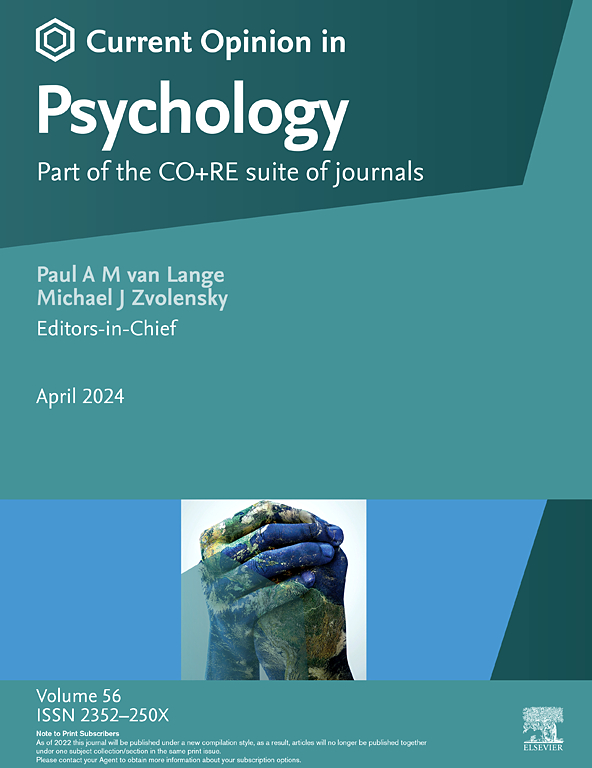领导人格是否预示着滥用监督?
IF 6.9
2区 心理学
Q1 PSYCHOLOGY, MULTIDISCIPLINARY
引用次数: 0
摘要
随着滥用监管的负面后果日益明显,对其前因后果的调查成为一个重要的课题。我们的回顾表明,领导人格作为虐待性监督的预测因子主要是用黑暗三合一特征来研究的。大五人格和HEXACO人格框架在较小程度上被使用。总的来说,亲和性、马基雅维利主义、精神病和自恋与虐待性监管最有说服力。此外,自恋被分成了几个方面,澄清了之前一些混杂的结果。最后,我们还确定了未来研究的几个领域。值得注意的是,我们建议调查面向层面的人格维度和人格特征以及人格变化。最近的研究表明,领导者人格与情境和下属行为相互作用,可以预测领导者对滥用监督(意图)的评价。最后,研究可以受益于不同方法的三角测量,包括个性的自我和他人评级以及观察数据。本文章由计算机程序翻译,如有差异,请以英文原文为准。
Does leader personality predict abusive supervision?
As the negative consequences of abusive supervision become increasingly evident, the investigation of its antecedents is an important topic. Our review shows that leader personality as a predictor of abusive supervision has mainly been studied using the Dark Triad traits. The Big Five and HEXACO personality frameworks have been used to a lesser extent. Taken together, Agreeableness, Machiavellianism, Psychopathy, and Narcissism are most convincingly related to abusive supervision. Additionally, Narcissism split into its facets clarifies some of the previously mixed results. Finally, we also identify several areas for future research. Notably, we recommend investigating facet-level personality dimensions and profiles and changes in personality. More recent research has shown that leader personality interacts with context and follower behavior in predicting leader rated abusive supervision (intentions). Finally, research could benefit from a triangulation of different methods, including self- and other-ratings of personality and observational data.
求助全文
通过发布文献求助,成功后即可免费获取论文全文。
去求助
来源期刊

Current Opinion in Psychology
PSYCHOLOGY, MULTIDISCIPLINARY-
CiteScore
12.10
自引率
3.40%
发文量
293
审稿时长
53 days
期刊介绍:
Current Opinion in Psychology is part of the Current Opinion and Research (CO+RE) suite of journals and is a companion to the primary research, open access journal, Current Research in Ecological and Social Psychology. CO+RE journals leverage the Current Opinion legacy of editorial excellence, high-impact, and global reach to ensure they are a widely-read resource that is integral to scientists' workflows.
Current Opinion in Psychology is divided into themed sections, some of which may be reviewed on an annual basis if appropriate. The amount of space devoted to each section is related to its importance. The topics covered will include:
* Biological psychology
* Clinical psychology
* Cognitive psychology
* Community psychology
* Comparative psychology
* Developmental psychology
* Educational psychology
* Environmental psychology
* Evolutionary psychology
* Health psychology
* Neuropsychology
* Personality psychology
* Social psychology
 求助内容:
求助内容: 应助结果提醒方式:
应助结果提醒方式:


